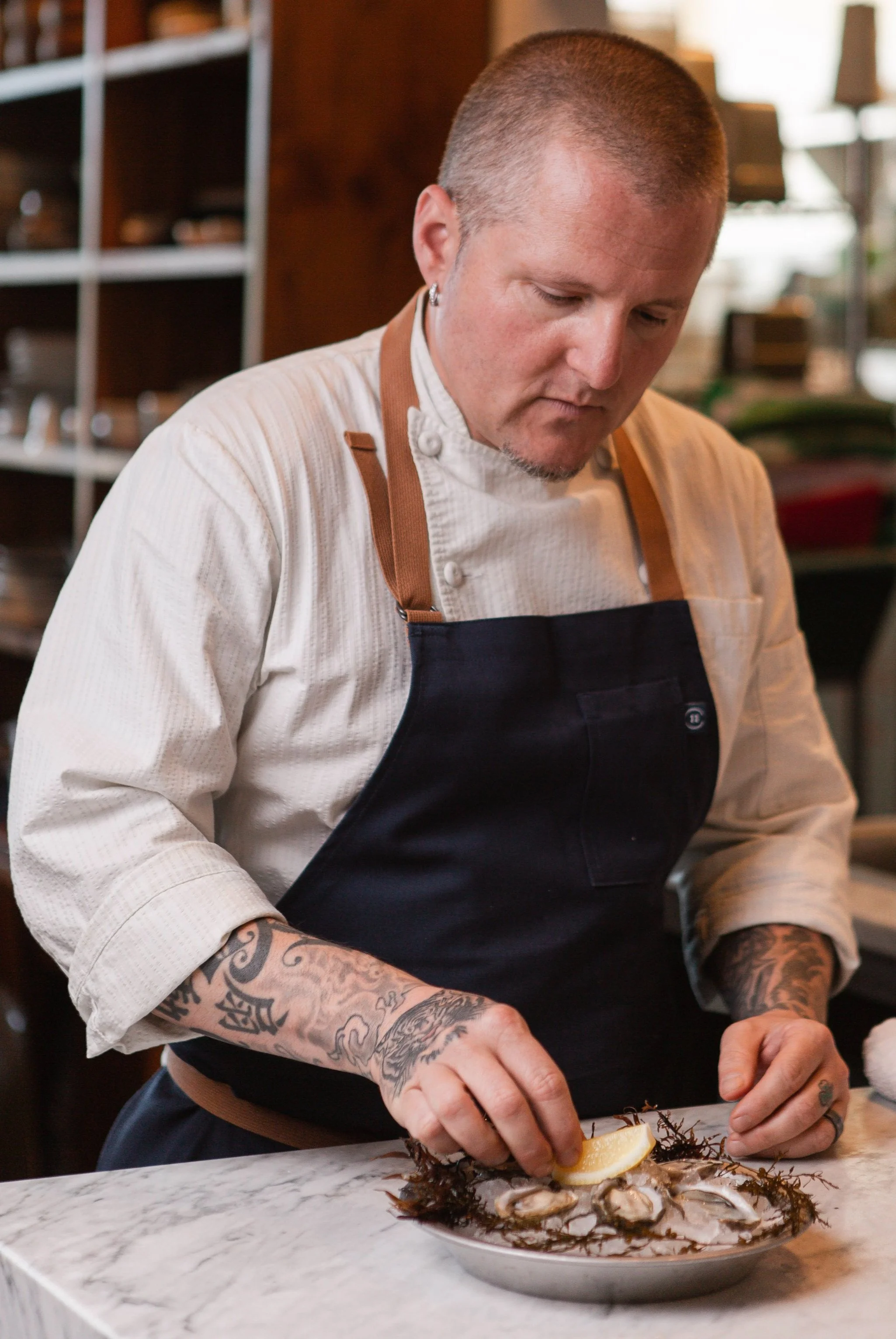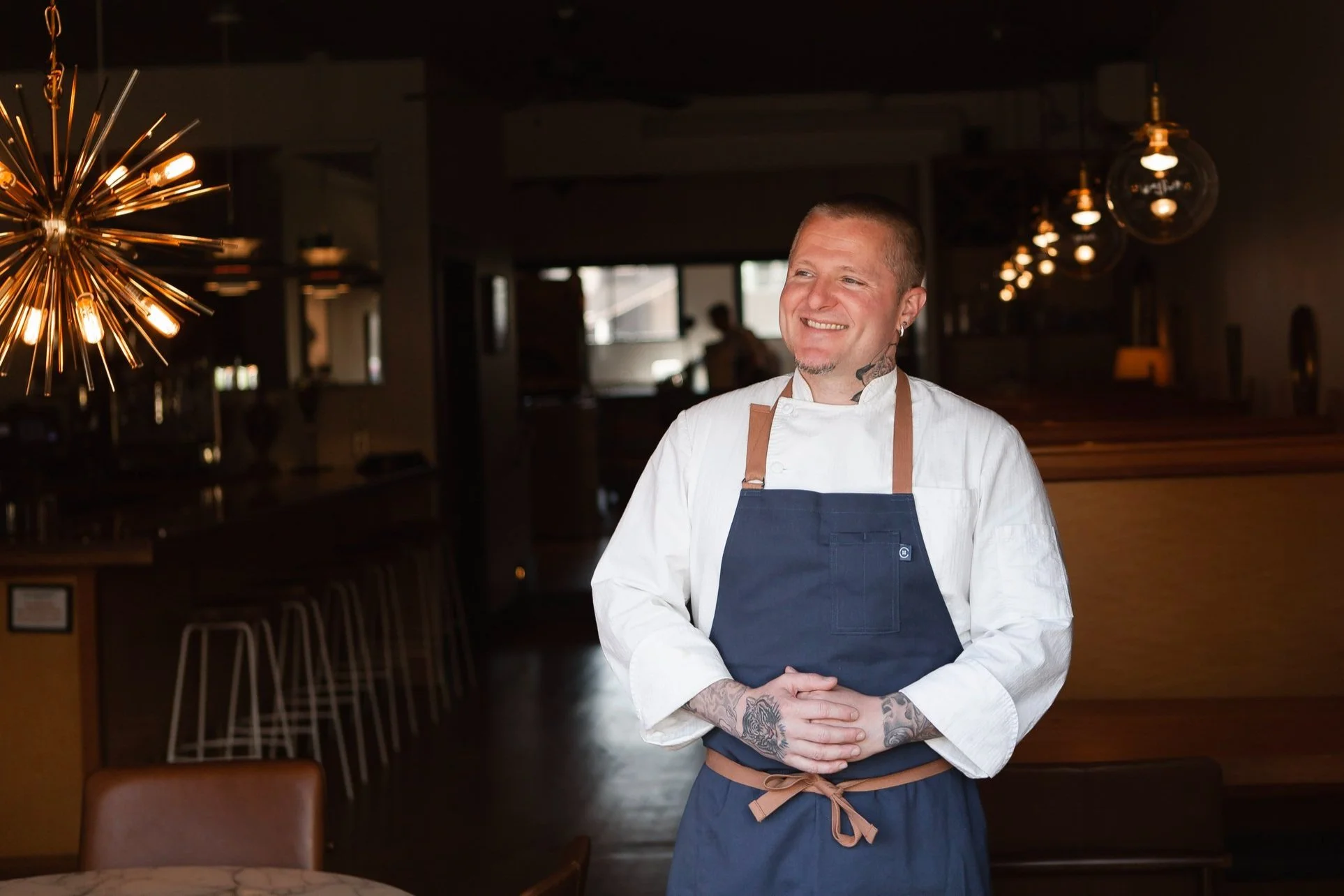a star chef rises again
BRENDAN MCGILL AND HIS UNFLAGGING MISSION TO HONOR LOCAL FOOD
Words by Alorie Gilbert • Photos by Jefté Sanchez & Charity Burggraaf
McGill preparing a platter of Baywater Indigo oysters (Photo: Jefté Sanchez)
Rockfish line caught near Neah Bay. Sugar kelp and oysters cultivated in the Hood Canal. Duck eggs from Bainbridge Island. The menu at chef Brendan McGill’s newest culinary venture, Seabird, reads like a love letter to the edible bounty of the Puget Sound.
Few chefs are as committed as McGill and his team at elevating local food produced by our region’s small scale organic farms, heritage breed ranches, wild food foragers and responsibly sourced seafood purveyors—many of them on or near the Olympic and Kitsap peninsulas. Proximity to a vibrant agricultural community was a big reason McGill, who rose up the culinary ranks in Seattle, chose Bainbridge Island as the location for his first and much celebrated restaurant, Hitchcock, 12 years ago. Not much later, he and his wife Heidi made the island their home and started an organic farm, Shady Acres, that supplies his restaurants. In addition to Seabird, McGill owns two additional eateries on the island and two in Seattle.
“Our local food system is so diverse and dynamic, and the growing season is really interesting. It never really stops, it just slows way down,” the energetic, outspoken McGill told me at Seabird one morning while prepping for a booked-out Thursday evening. “When the tomatoes take all year to get there, they’re tastier.”
McGill grew up in Fairbanks, Alaska, eating from his mother’s garden and the rivers his family fished for salmon. Being close to the land and those who work it fuels his creativity. And Seabird, with its emphasis on fish and vegetables, is a nod to those formative foods and experiences in some respects—though transforming them to a level of refinement and artistry all their own.
I dined at Seabird soon after it opened. Every detail our party of four encountered—the original art on the walls, vintage tableware, gracious service—felt thoughtfully curated. We shared every dish, each one delivering unexpected, memorable flavors and textures—all artfully presented.
One of the most original was uni french toast, a small plate conceived of by executive chef Grant Rico. It consists of spongy little bite-sized blocks of brioche soaked in dashi, cooked on a griddle and topped with sea urchin and delicate garnishes. The halibut ceviche, cured in filtered local seawater, was another highlight. A side of seaweed bread with sugar kelp butter was perfect for soaking up the tangy broth, a.k.a. “leche de tigre.”
The creative use of seaweed, sourced from Blue Dot Sea Farms, and other inventive dishes (e.g. Dungeness crab custard and “seacuterie,” a selection of cured fish) are the result of McGill’s collaboration with Rico, as is the entire Seabird concept, which they dreamt up in the depths of the pandemic.
Rico, who grew up in Kitsap County, joined Hitchcock in 2019 from SingleThread, a 3-star-Michelin farm-to-table restaurant in California. When the pandemic hit, permanently shuttering Hitchcock, Rico stayed on for “every wackadoo pivot we did,” from takeaway burgers to guest chef pop-ups, McGill says. He calls Rico “one walking, talking silver lining to this day.”
Reflecting on the challenges of the pandemic, McGill recalls a period of despair early on. But it didn’t last long as he and his team sprang to action and found an antidote in creativity. In terms of silver linings, McGill was able to focus on his health, spending more time with his young sons and in the garden on a family hideaway in Maui. “As a chef, I got to lean into wildly creative projects without considering what it would mean for the future,” McGill says. “I had to destroy and rebuild, and I think we have a better group of restaurants than we did before.”
Photo: Jefté Sanchez
Through it all, he never wavered in his mission to honor local food. He launched Hitchcock Community Supported Agriculture (CSA), delivering weekly meal kits packed with regional produce, meats, flowers and recipes. They were like a dinner party in a box and actually turned a profit (not every pivot did). While McGill ceased the service with the opening of Seabird last spring, it was a boon to local growers and producers.
For Persephone Farm, which supplied mini-bouquets that accompanied each meal box, Hitchcock CSA was a “game changer” financially. “Like so many businesses, we were totally struggling and wondering how we were going to stay afloat,” recounts owner Rebecca Slattery. “So getting to make 150 of these miniature arrangements was a creative challenge that really kept me and my staff going.”
McGill’s support of local farms is a stance against what he calls the “bastardized industrial food system,” whose ill effects on our bodies and our planet are illuminated in the books The Omnivore's Dilemma and Fast Food Nation. “From the soil to the health of the planet and our dependence on fossil fuels to the local economy—everything that local, organic food touches, it improves,” McGill asserts. “The two systems could not be further apart from each other.”
That was one of the many deeply held views McGill, who has earned accolades both local and national, shared over the course of a couple hours he spent with me. The affable, down-to-earth chef also deftly responded to the needs of whoever wandered into the restaurant, from suppliers and repair people to a widower who’d dined at Hitchcock regularly with his wife. He’d come by to confirm his upcoming Seabird reservation—his first date since his wife’s passing.
The two men chatted, and McGill noted afterward that he lives for such interactions. Creating memorable experiences and serving people with grace are the essence of his mission as a restaurateur, he says, adding with emotion: “Being part of someone’s life—that’s the deep down stuff. That’s what I put my pants on to do.”
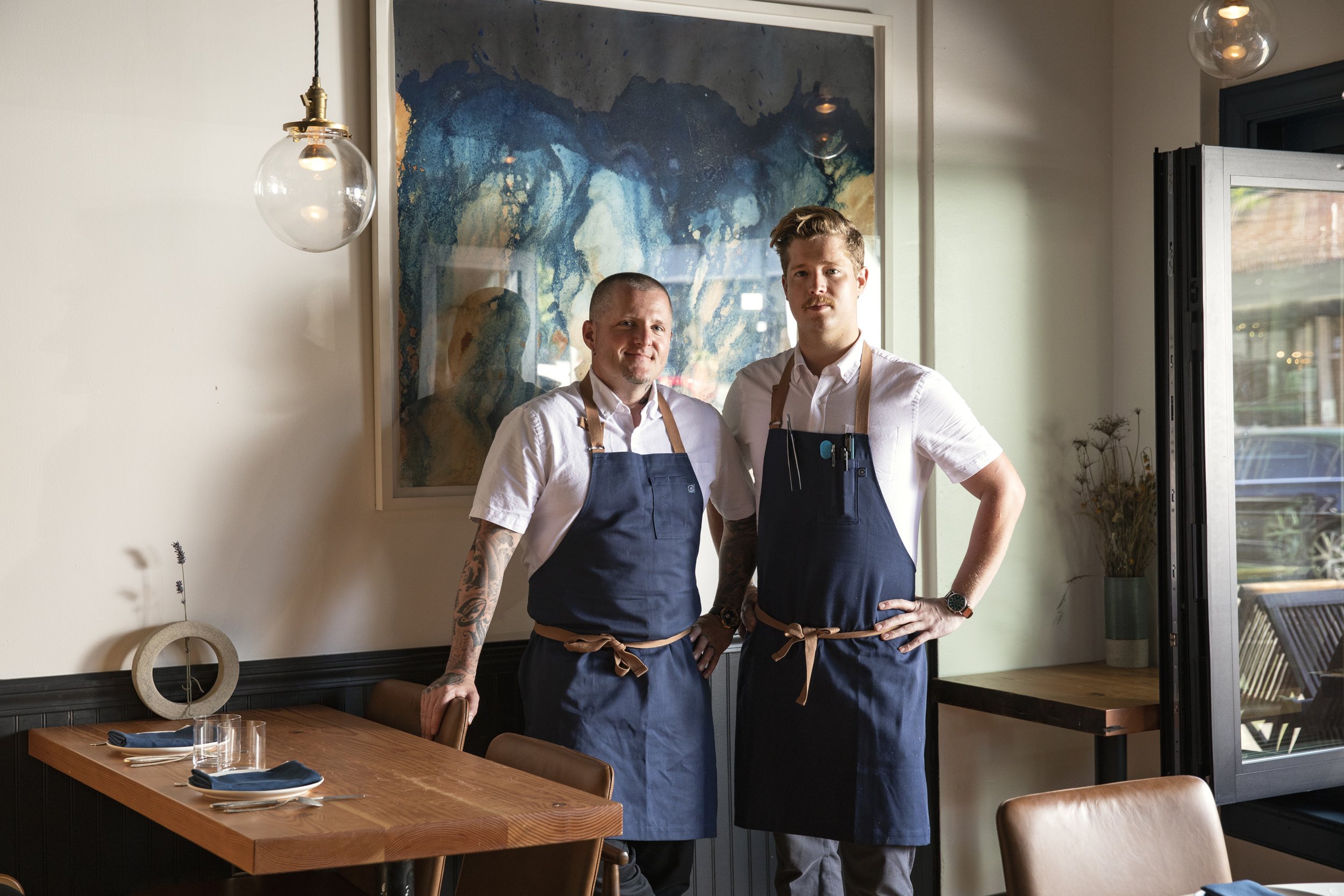
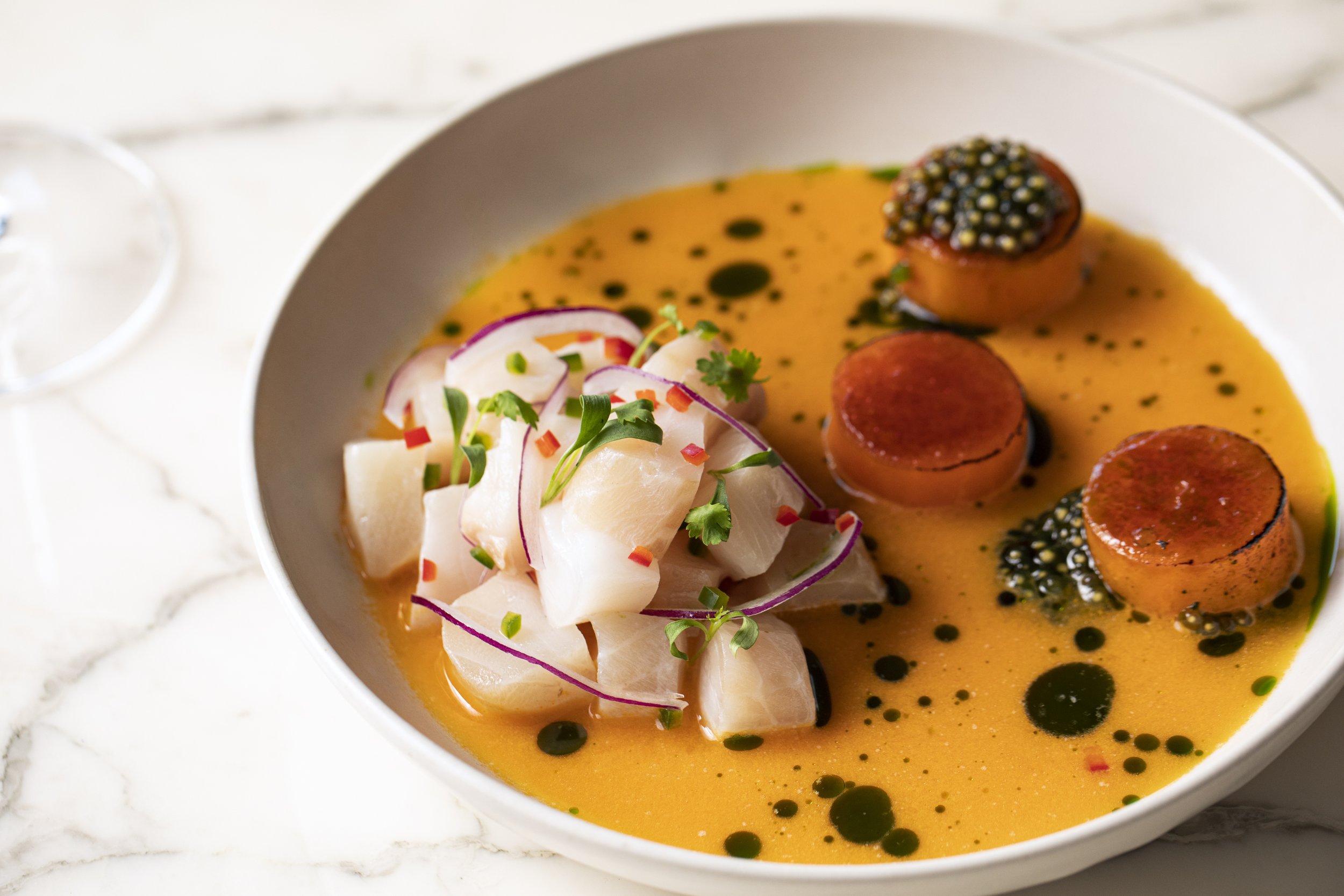
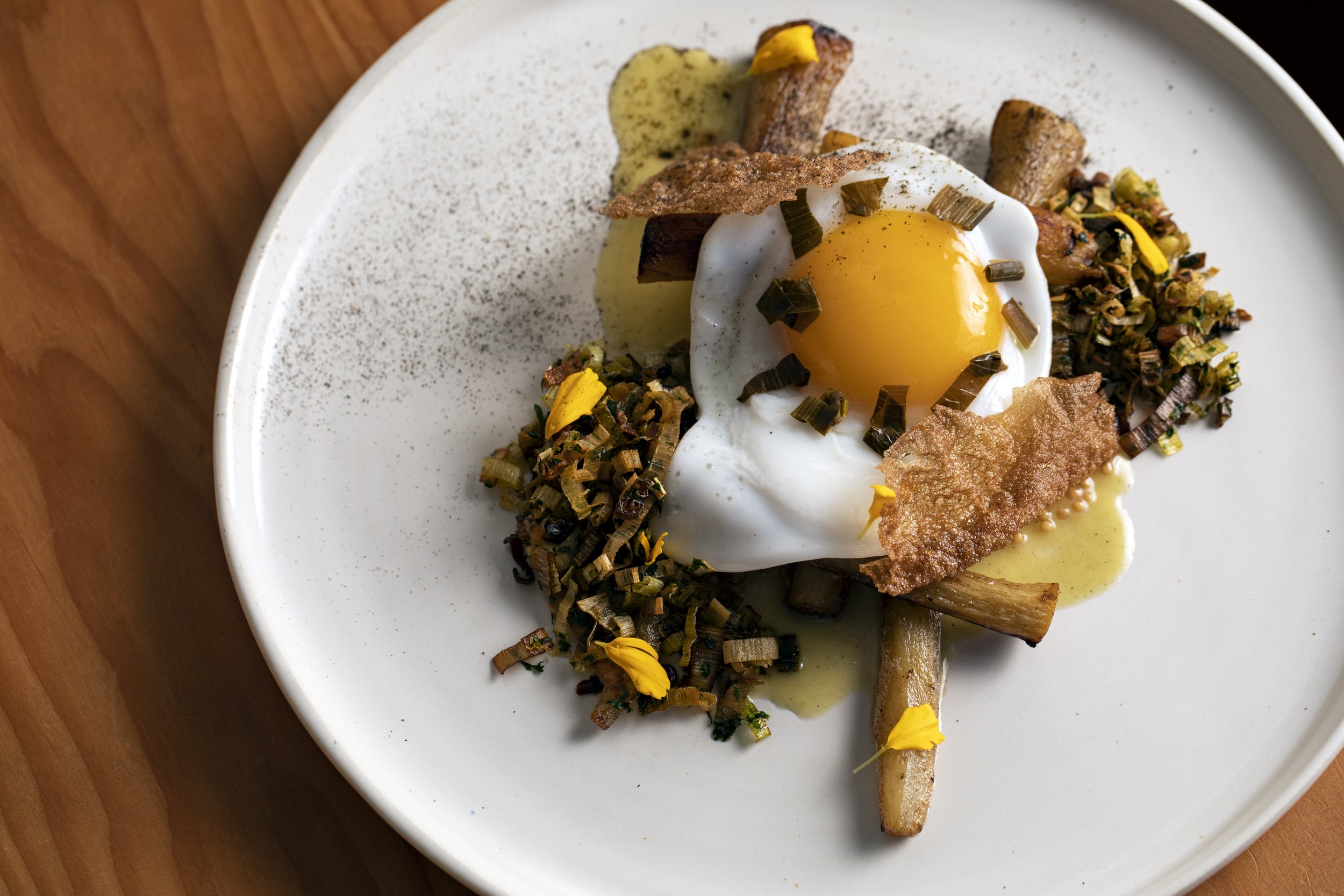
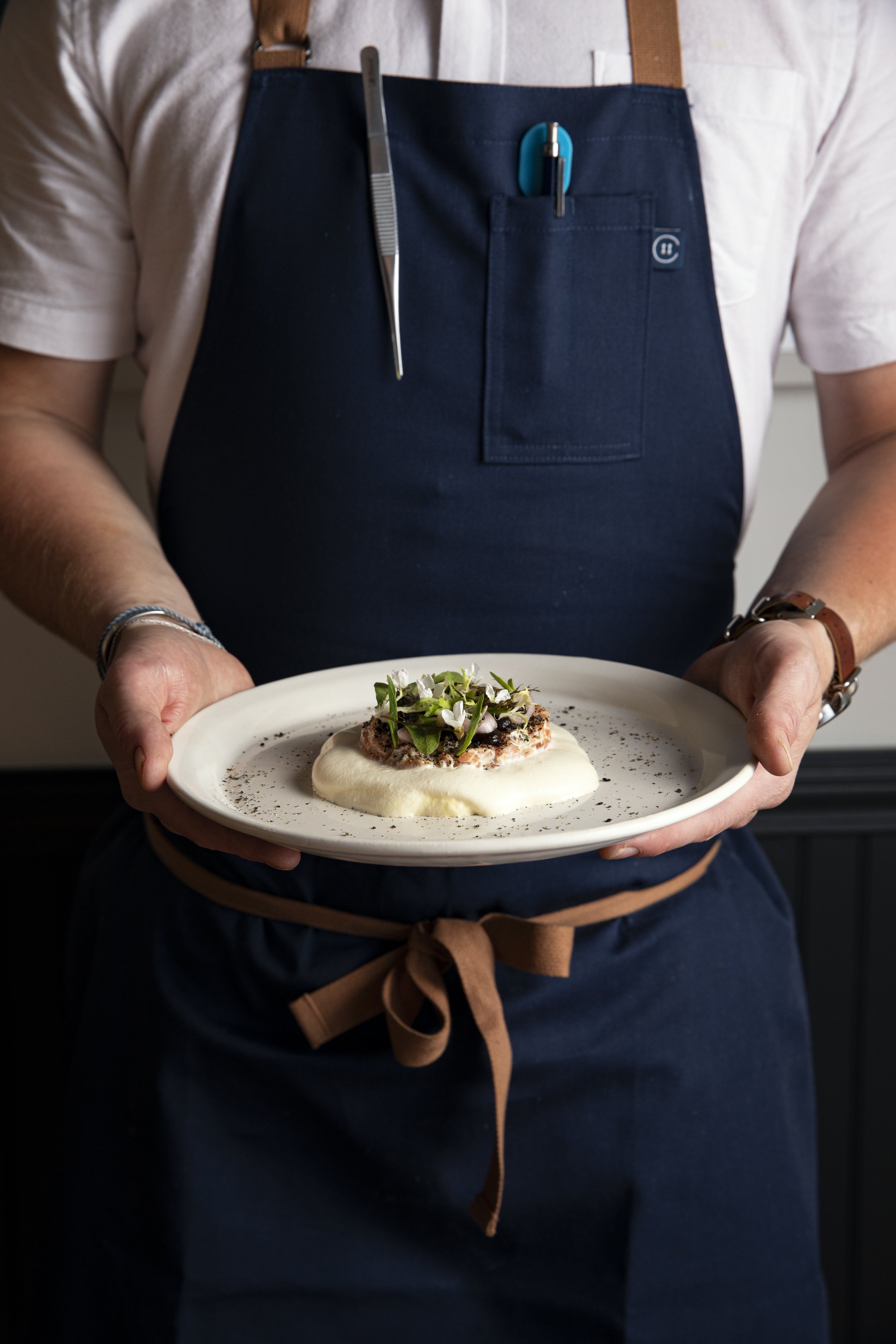
Photos: Charity Burggraaf

